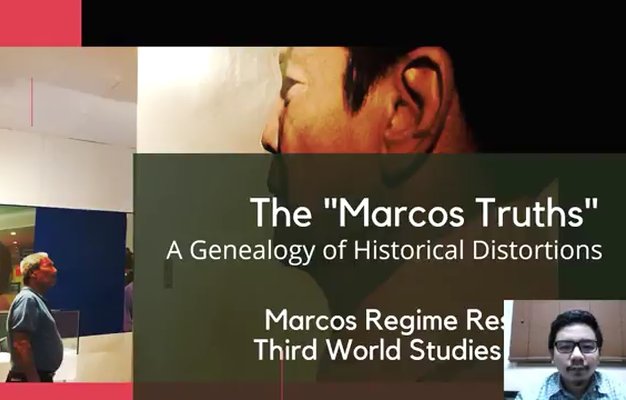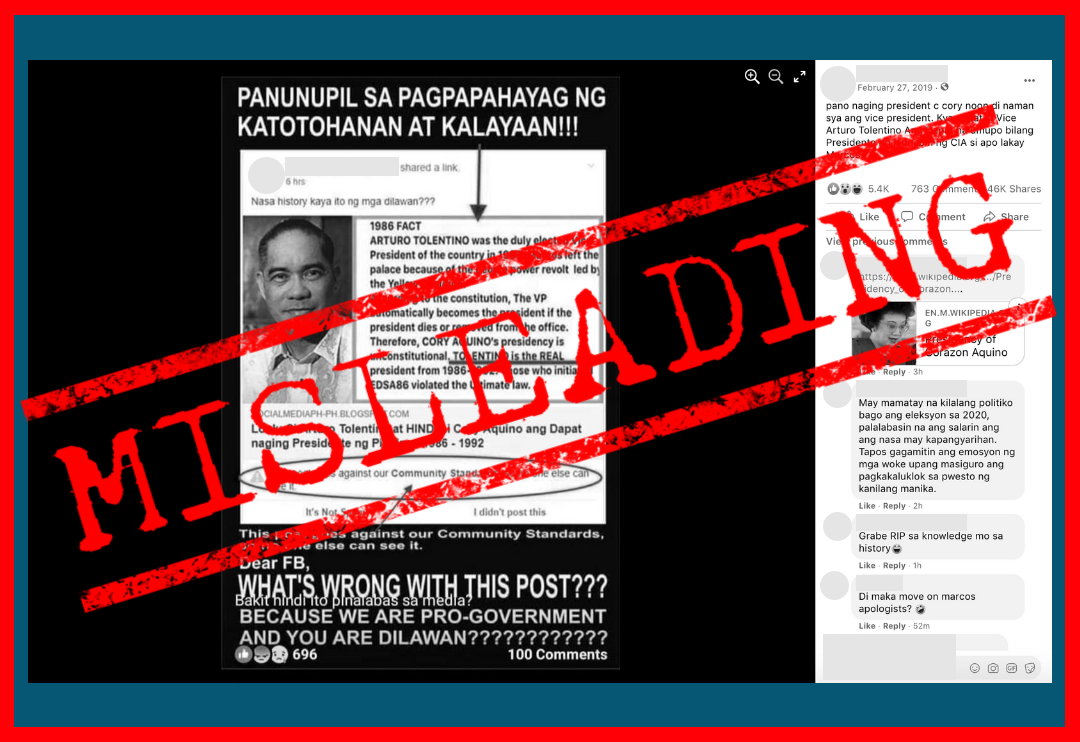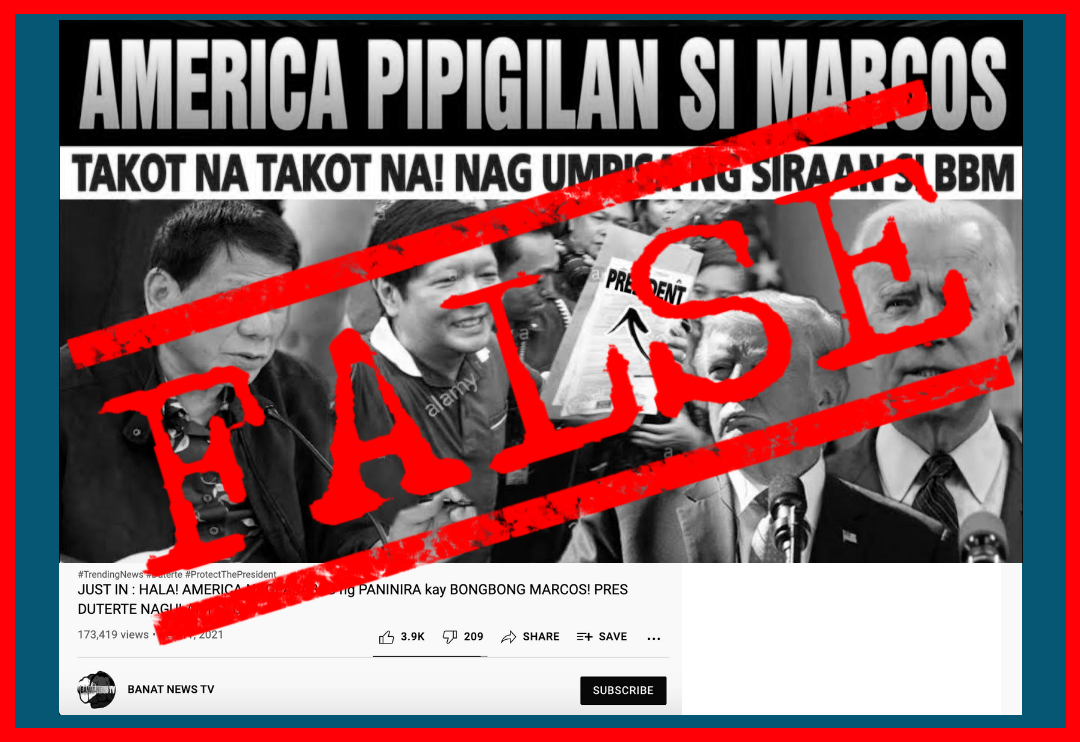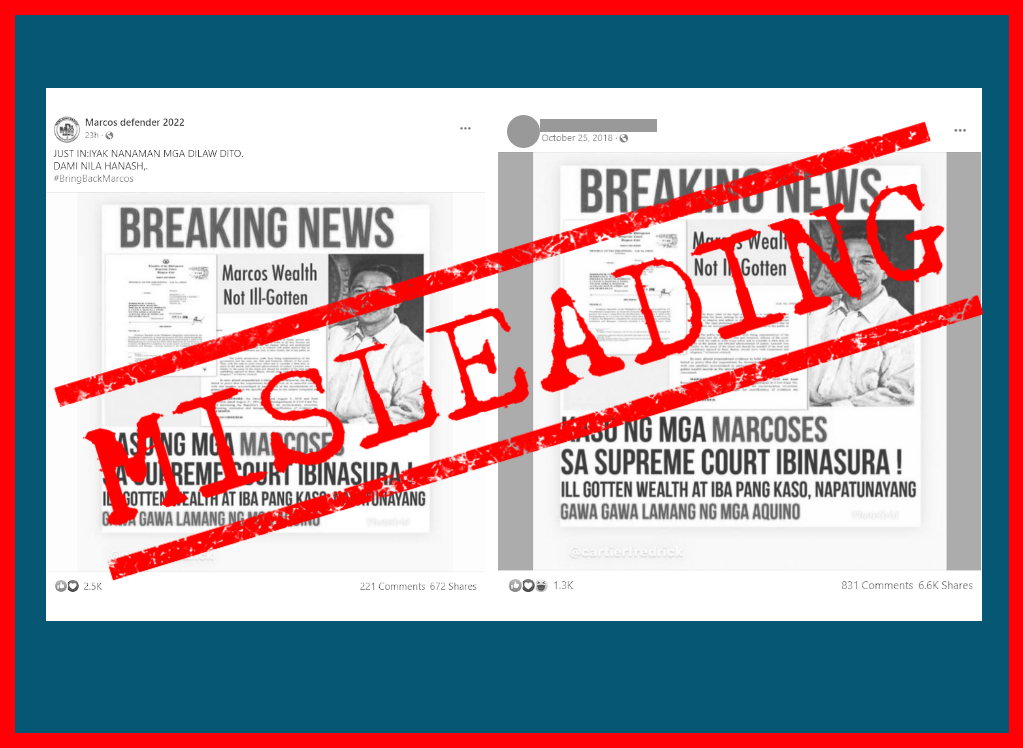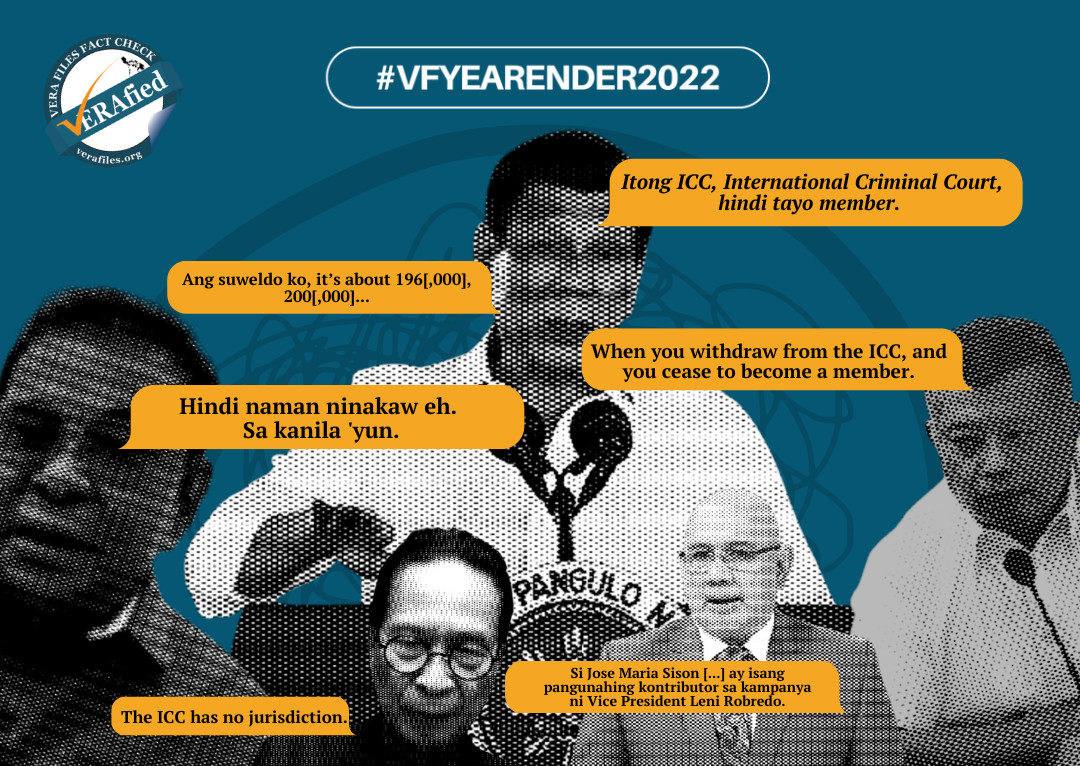Heritage sites in Ilocos Norte and propaganda books all promoting the “greatness” of dictator Ferdinand Marcos are linked to one another, a study by two University of the Philippines (UP) Diliman researchers from the Marcos Regime Research Group concluded.
“The Marcoses, their loyalists, and other allies have been producing and reproducing propaganda all these years, with the intended effect of conferring a patina of well-researched scholarship to Marcos,” Miguel Paolo P.Reyes, one of the researchers, explained during a webinar on Dec. 9 organized by The Consortium on Democracy and Disinformation (D&D;), De La Salle University Jesse M. Robredo Institute of Governance and the Asian Center for Journalism of Ateneo de Manila University.
The study, which was also co-authored by Joel Ariate Jr., concluded that although current online disinformation favoring Marcos does not build up on written propaganda, it “saturates the audience with all sorts of information up to a point that the propaganda effort appears to be without an author.”
“They let their sanctioned book and disinformation mingle with often more crude falsities online which lets them keep and grow their loyal base,” Reyes said.
Online Marcos propaganda
Contrary to the study’s initial hypothesis, only around 15 percent of Marcos-related lies can be traced to the body of printed propaganda.
An initial analysis of 119 false claims on the Marcoses debunked by fact-check organizations such as VERA Files, Rappler, and Agence-France Presse Philippines reveals that recent events, people quoted by the media, and information distributed via social media which did not come from source books make up around 72 percent of online Marcos propaganda.
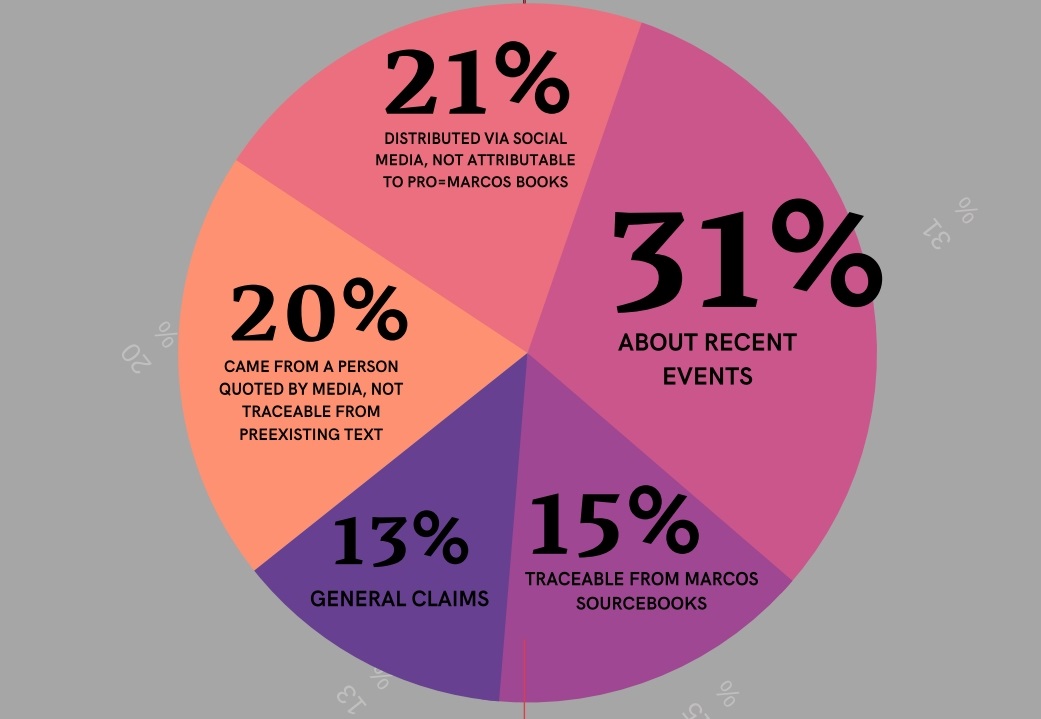
Reyes gave examples of pro-Marcos claims based on source books and falsified information, such as Marcos topping the bar exam, the success of Marcos’ BLISS housing project, and Chinese drug lord Lim Seng being the only person executed during Martial Law.
Some online sites such as the pro-Marcos blog Kahimyang Project, Philippine Shocking History on Facebook and YouTube, and The Rita Gadi Hour on YouTube channel Katipunan ng Demokratikong Pilipino feature content from the source books, the researcher added.
Marcos regime sites and their link to print publication
In the Dec. 9 forum titled “Where’s the Lie? Research Findings on Disinformation,” Reyes narrated how narratives of photos and artifacts in major Marcos commemoration sites/museums in Ilocos rely on specific books establishing praises and propagating myths about the former dictator.
The exhibit at the Ferdinand E. Marcos Presidential Center in Batac, Ilocos Norte, is based on the Marcos autobiography For Every Tear, A Victory written by Hartzell Spence. It “documents the dictator’s formative years: his falsified war exploits as a guerilla leader, his life as a congressman, and his whirlwind romance with his wife Imelda Marcos,” Reyes explained.
In terms of content, the museum articles from Marcos’s birthplace in Sarrat, Ilocos Norte closely follow the story in the book The Young Marcos by Victor Niruda.
Several photographs featured at the Malacañang of the North Museum in Paoay, Ilocos Norte, showcasing Marcos’s alleged achievements also came from Marcos-era publications like the 1980 full-color hardcover The Marcos Revolution: A Progress Report on the New Society of the Philippines.
Some books went beyond being featured in historical sites, Reyes said. The photobook Let the Marcos Truth Prevail, at the Marcos Photo Gallery in Batac, featured blown-up news clippings of Imelda Marcos’ 1990 acquittal for fraud and racketeering. Reyes added that the book was then used by Marcos loyalists for scams beginning the early 2000s.
Pro-Marcos source books
Mapping out the bodies of literature — which the researchers call as source books — written in favor of the Marcoses, Reyes and Ariate established that they were written by a network of pro-Marcos aides and allies.
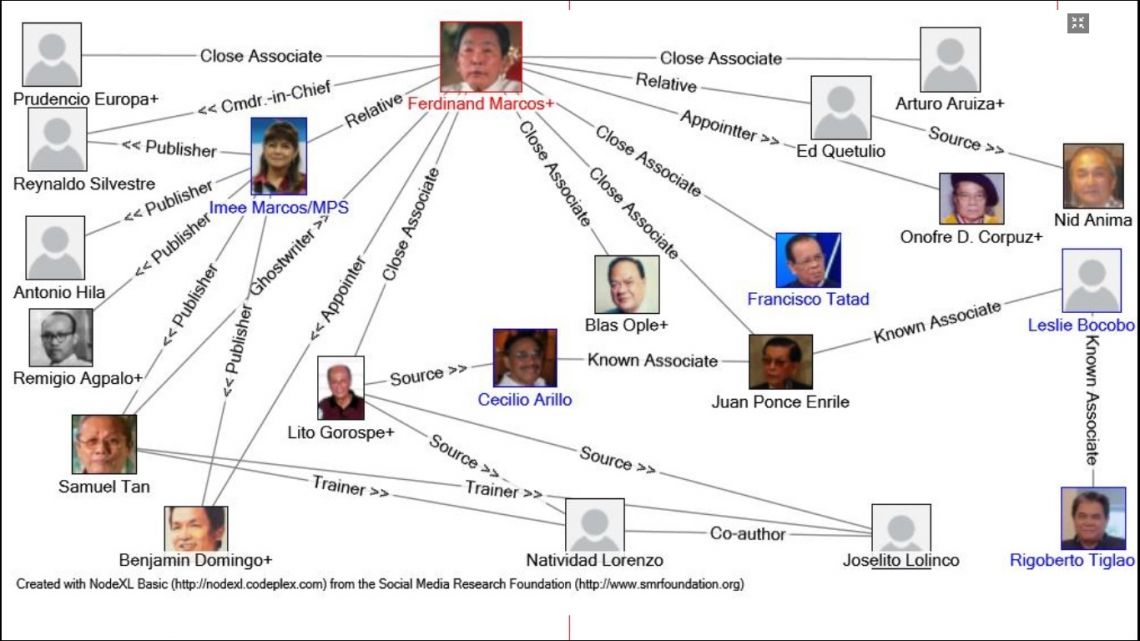
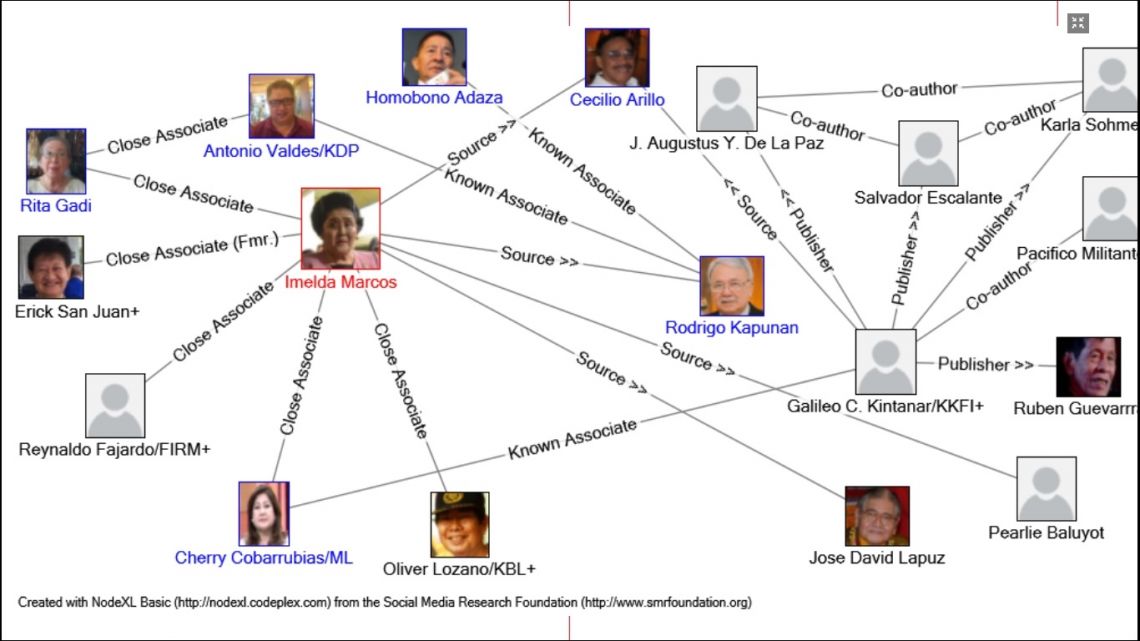
Political author Cecilio Arillo wrote biographies such as the 2011 book A Country Imperiled. Others who wrote in favor of the Marcoses include the late Br. Gen. Galileo C. Kintanar Sr., who worked in the intelligence sector, and Cherry Cobarrubias, a close friend of Imelda Marcos.
Some have even become columnists, like former Minister of Public Information Francisco “Kit” Tatad, former journalist and diplomat Rigoberto Tiglao, and writer Rodrigo “Rod” Kapunan.
Most of these authors relied on the Marcoses as sources for their books, while others resorted to plagiarism. For instance, several parts of Arillo’s 2012 book Imelda: Mothering and Her Poetic and Creative Ideas in a Troubled World, were taken verbatim from the 1995 book Circle of Life authored by Imelda Marcos.
Some of the books misrepresented historian Renato Constantino by framing him to be a pro-Marcos supporter even if his work shows otherwise. The books also claimed that most of the Martial law victims are communists, and denied any form of graft and corruption committed by the Marcos family.
“All of these can be categorized as fundamental lies about the Marcoses: from false claims about Marcos’s brilliance and heroism to disinformation about the Marcoses’ wealth and the status of the cases filed against them,” Reyes said.
For Reyes, the lies were propagated by the Marcoses themselves to “feed their ‘truth’ to whoever will listen almost as soon as they were out of power.”
“Discrediting sources, besides debunking false claims, can help address such an affront to democracy,” he concluded.
The Marcos disinformation study was one of six research projects funded by D& D, a national network of journalists, academics, and civil society representatives .
This article is also in ABS-CBN online.
